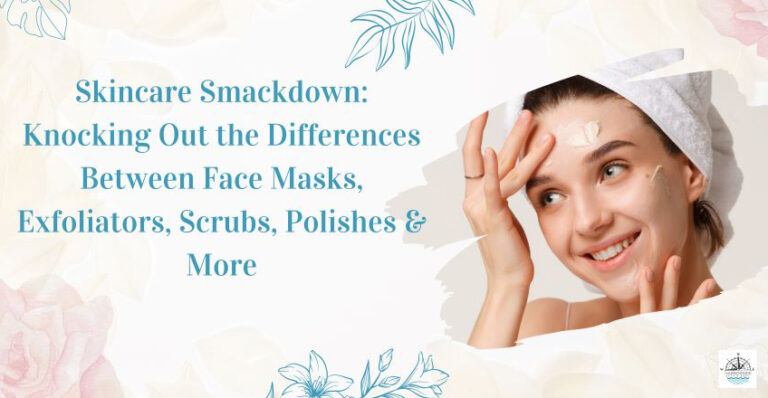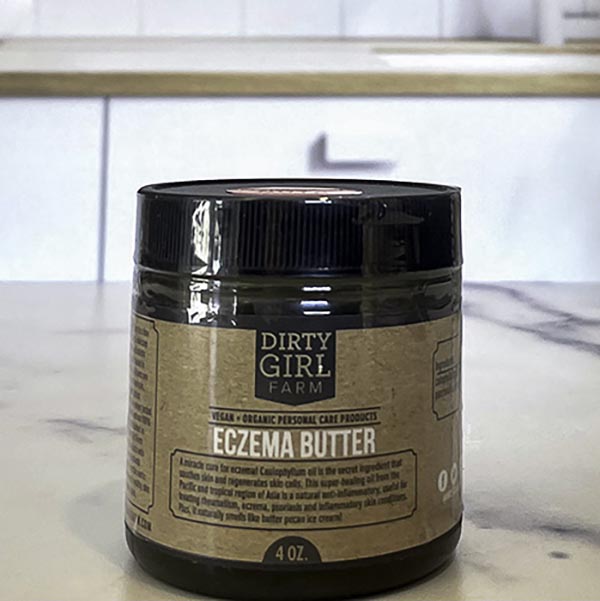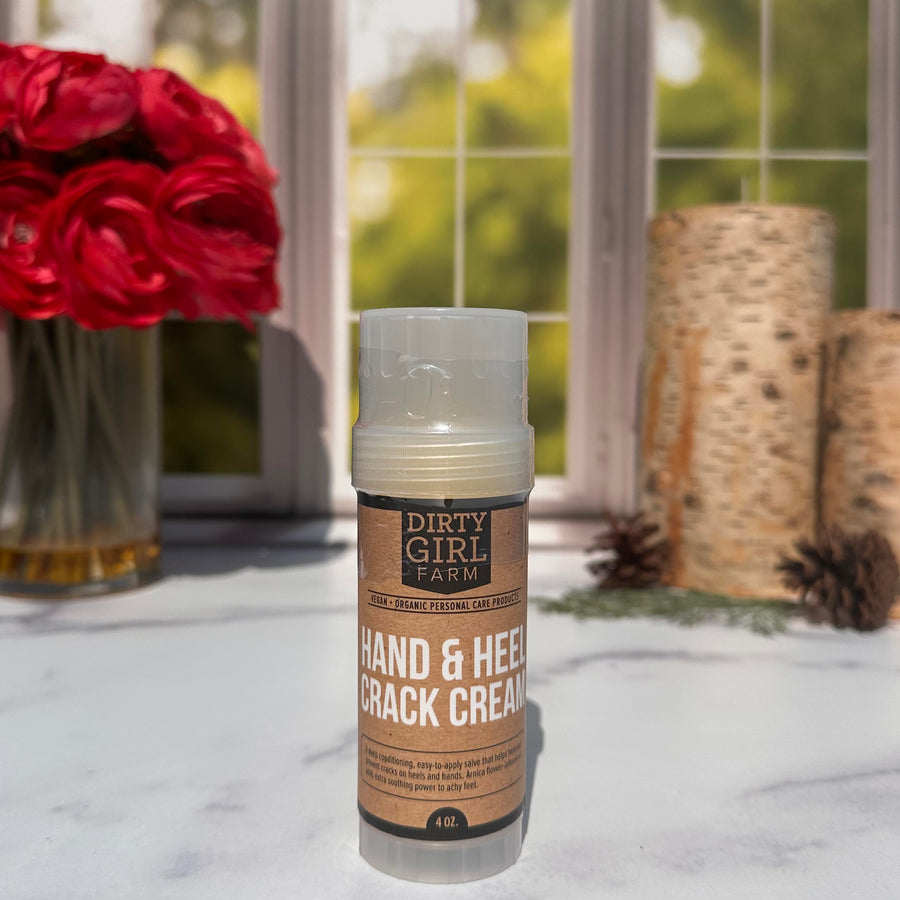Skincare Smackdown: Knocking Out the Differences Between Face Masks, Exfoliators, Scrubs, Polishes & More

Hey Friends! I’ve been posting a lot about the amazing masks, scrubs, polishes, etc. with the addition of Elina Organics line of skincare in our brick and mortar store and online. For those of you that may not know, Elina Organics serves some of the best spas and salons across the USA, and in Chicago, a spa that uses her products was selected for “The Best Facial In The Windy City.”
However, since I’ve started posting about these new products, I’ve had a lot of questions about what’s the difference between them (besides their ingredients) and their overall purpose. So this blog is all about clearing up that confusion!
Say Goodbye to Dull and Lackluster Skin for Good!
If you are new to skincare, the basics include cleansing, toner and moisturizing day and night. Once you are in a daily routine of doing that, to get your skin looking its best, it’s important to add masking and exfoliating anywhere from 1 – 3 times per week, depending on how well your skin can handle it. Masking and exfoliating give you your best chance to wash away the stress, free radicals and the daily wear and tear of your skin as a result of getting older to reveal glowing, younger looking skin. Sounds great, right?
LET’S POLISH OUR SKIN TO PERFECTION!
To begin, let’s talk about what exfoliators are. Their job is a big one because every day our skin sheds millions of cells every day, and it’s impossible to ensure that every dead skin cell falls off. The stubborn skin cells that don’t fall off through the natural shedding process or by cleansing will build up over time, causing your skin to look dull, lack luster and even grayish for some. That’s where exfoliators come in. Exfoliators are a broad category of skincare products whose main purpose is to remove those stubborn layers of dead skin that don’t fall off easily, and that process can be done by using either a physical or chemical exfoliant. It’s important to understand that using chemical exfoliants does not necessarily mean that the product has chemicals in it. It’s called a chemical exfoliant because of the metabolic process of removing the dead skin cells which is a chemical reaction.
Organic ingredients like alpha-hydroxy acids (AHAs), such as Glycolic and Lactic acids, are natural to us, yet they are considered a chemical exfoliant. It’s also important to note that chemical exfoliants and chemical peels are not necessarily the same thing. They both exfoliate the skin, but chemical peels often use chemicals (unless you find an organic one) that peels off the top layers of skin, so they work at a deeper level. Physical exfoliants include scrubs and polishes and they physically remove dead skin cells by using small particles in the mixture. The dead skin cells are removed by these small particles when applying and removing the exfoliant in a circular motion. Exfoliators are a fantastic way to brighten and smooth the skin, but be careful not to overdo it. Too much exfoliation is not a good thing, and can lead to irritation and inflammation, so be sure to read the directions on how often your exfoliator should be used.
POLISH, SCRUB, SKIN REFINER? DECODING THE BUFF BATTLE!
As mentioned above, polishes and scrubs are in the broad category of exfoliants, but we’ll discuss the difference between the two here. Skin refiners are a whole other topic, because there is not a consistent term in the industry. Some makers use the name in exfoliants, others in toners and some in moisturizers. So, if you see the term “skin refiner”, make sure you know exactly what you are buying.
Let’s start with scrubs. Scrubs are a physical exfoliant that use small particles to slough off dead skin cells and reveal smoother, brighter skin. They can be gritty, so its important to understand how much grit you like in your exfoliator. If you are new to exfoliators, start with something gentle and if you feel like its not enough “grittiness” for you, then move up to something a bit more aggressive. Some scrubs contain nuts which are fairly aggressive. Others may use things like sugar or salt, which is less aggressive than those that use nuts.
Scrubs can be used on your face and even your body, but as mentioned earlier, its important to follow directions on how often they should be used, and remember let your skin be your guide. For those that love the gritty feel of a physical exfoliator, this Organic Face Scrub is one I would recommend. If you want something a bit more gentle, but still a gritty exfoliator, this Pumpkin Spice Scrub is amazing! It smells so good, you’ll want to eat it! This Cranberry Rose Skin Refiner, for example, is an excellent, gentle exfoliating mask, that actually does double duty. It uses tiny rye seeds to aid in the exfoliation process and is packed with Vitamins and antioxidants to help soften and hydrate your skin.
Keep in mind that if you exfoliate and mask on the same night and are not using a two in one product like the Cranberry Rose Skin Refiner, it’s important to exfoliate before you mask, so that the mask is working on fresh, clean skin and does not have any dead skin cells blocking your pores. You would cleanse, exfoliate, mask, toner, and if you use any serums, you would use those, and then finally your moisturizer.
Polishes are similar to scrubs, but they’re typically gentler. They use smaller, finer particles like rice powder or bamboo extract or even crushed minerals to polish the skin and remove dead skin cells. Polishes can be a great option for sensitive skin or for those who find scrubs too harsh. Another great option for those with sensitive skin are exfoliators that use jojoba beads, which are spherical and roll over your face to loosen dead skin cells rather than physically removing it, so it is a much less intensive exfoliator. This Amethyst Polish and this Exfoliating Scrub (super gentle because it uses jojoba beads) would be great options.
If you are wondering which one is right for you, it really depends on your skin type and what level of grittiness you like on your skin. If you have oily skin and clogged pores, a clay or copper mask and a scrub might be a great option. If you have dry, sensitive skin, a hydrating mask and a gentle polish might be a better choice. And if you’re looking to brighten and smooth the skin, an exfoliator with AHAs, such as this Aronia Berry Exfoliating Mask.
THE POWER OF ADDING FACE MASKS TO YOUR SKINCARE LINEUP:
Face masks are a great way to give your skin a little extra TLC and should be used after you cleanse your face but before you use toner if masking on a different day than you exfoliate. They come in a variety of formulas and are generally used to target specific skin concerns. For example, if you have oily, acne prone or congested skin, a clay, copper (see Crushed Copper Purifying Mask, which is actually a clay mask with copper powder in it) or activated charcoal mask (see Charcoal Mask) is a great way to detoxify your skin as it can help absorb excess oil and unclog pores.
However, if you have dry or flaky skin, you may be interested in a hydrating mask that can help add water content to your face and soothe irritation from dryness, this Hydration Boost Mask is fabulous! There are also face masks that help with hyperpigmentation, minimizing fine lines and wrinkles, and improving elasticity of your skin. Face masks are typically left on for 5-15 minutes before being rinsed off, and can be used 1 – 3 times per week by itself or with an exfoliator, or do it all in one use with an exfoliating mask, such as the Cranberry Rose Skin Refiner.
IS MORNING OR NIGHT THE BEST TIME TO EXFOLIATE AND MASK?
I get this question a lot, and I believe it is really about personal preference. I prefer to mask and exfoliate in the evening so that my skin is free from all the dead skin and can really take all the wonderful ingredients in my mask and moisturizer to deeper level. Skin repairs itself while you sleep, so I like to think I am helping it along. However, many people prefer to exfoliate and mask in the morning so that they have that extra glow on their face with newly exfoliated skin.
Speaking of glow, and the one mask I do use in the morning, is this amazing Probiotic Polishing Mask! One customer recently told me that their face felt like butter after using it! It will definitely get your glow on! I hope this blog helps demystify the confusion amongst all the different terms used in these two critical steps of skincare. The key is to listen to your skin and pay attention to how it reacts to different products. And remember, consistency is key when it comes to skincare. Stick to a routine that works for you and your skin will thank you!
CURATED COLLECTIONS
Find products your skin type!





